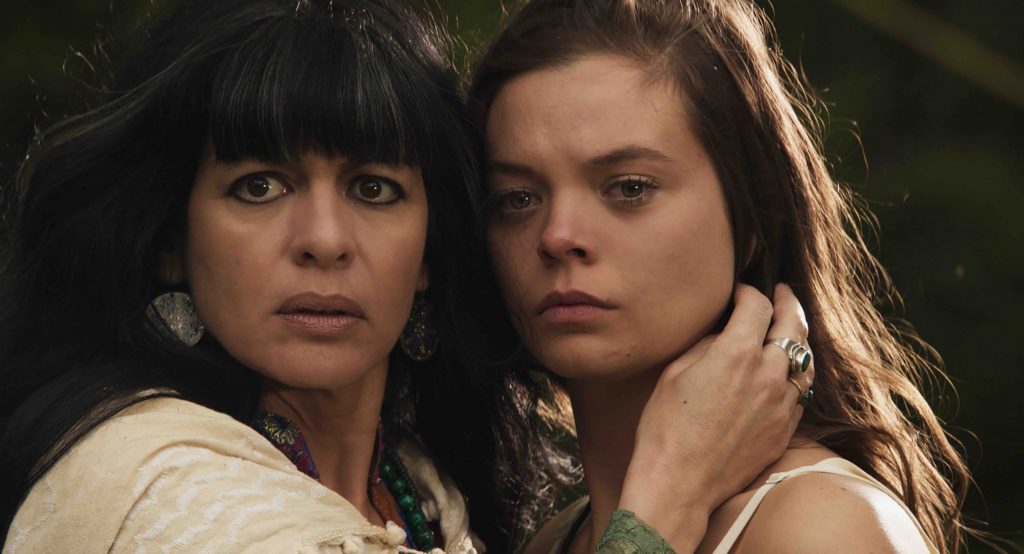Read also:
How to Watch FX Live Without CableHow To Watch AMC Without CableHow to Watch ABC Without CableHow to Watch Paramount Network Without CableBruce LaBruce’s latest is a scintillating tale of queer lust, families, and doubles.
(This review is part of our coverage of the 2021 Reeling International LGBTQ+ Film Festival.)
Read any early Film Theory and you’ll be convinced that cinema is psychological and perverted. The watching we do as audiences transforms seeing into pleasure and meaning. The screen is a mirror with that ever-floating eye, the camera, being id and ideology. Pornographers understand this, as do the French and horror directors.
Famously influenced by all of these, Canadian bad boy Bruce LaBruce returns to shock and scintillate us with Saint-Narcisse. This warped and weird gothic tale fully embraces cinema’s ability to self-reflect and spins it into a queerly erotic tale of lust and doubles.
We follow Dominic (Felix-Antoine Duval) in a story for the shelves next to Matthew Lewis, VC Andrews, and Bruno Dumont. Upon learning that his birth mother Beatrice is still alive and waiting for him, he takes off into the wilderness where the locals of Saint Narcisse say his mother lives as a witch with a partner who never ages.
After a brash confrontation with his mother’s (Tania Kontoyanni) ward and lover Irene (Alexandra Petrachuk), Dominic religiously reconnects with his Beatrice. Then he moves into their emo-cottagecore home to further reconnect with his roots. Once he finds out through a preternatural technicality that Irene isn’t his biological sister—an initial possibility—but the child of Beatrice’s former lover (also played by Petrachuk), their tensions boil over into fucking. Soon, they’ve begun to settle down in a triad. But haunting and intrusive visions plague Dominic.

These psychic messages lead him to a nearby monastery where he shockingly stumbles across his unknown twin, Daniel (also played by Duval). Living in the monastery since infancy, he’s become the pet of a sadistic priest who thinks he’s the reincarnation of Saint Sebastian. As the brothers’ aesthetic, psychological, and sexual boundaries break down, the pair hatch a plan that will liberate them all to live as one big, happy, very involved family.
In terms of story and design, Saint-Narcisse is a salacious and seductive knockout. It intends to blindside you with the outrageous before you have a moment to consider the dialogue or soundness of its structure. Those punches often result in a dizziness fans of the gothic, true crime, and Lifetime original movies know intimately. Each turn is more unbelievable than the next. In that experience, there’s certainly a kind of enjoyment to be had with Saint-Narcisse.
LaBruce expertly reminds us that we are watching all this blasphemy. We continually witness layers of looking, as is right for a film that takes its name after the Greek Narcissus, who fell in love with his own reflection. LaBruce uses mirrors, water, cameras, binoculars, statues, and telepathy to compose complex shots that help set a leering voyeuristic mood that maintains its strength throughout the film.
It’s as if the movie is all theme and no thematics.
With a story like this, I don’t need the dialogue to be good. I prefer it not to be. This isn’t about what people say to each other; it’s about what they do to each other. With their bodies. Mostly sexually. However, as Daniel probably said to Dominic, it could go deeper.
Better structured ideas of identity and/or time would have intensified the enjoyment of this film. Cowriter Martin Girard and LaBruce’s script comes out swinging with big ideas about doppelgangers, reincarnation, and narcissism, all of which offer complex theories of identity LaBruce wants to consider. But he doesn’t give us enough consistency to fully understand the world of his characters or their feelings and behaviors.
Christophe Lamarche-Ledoux’s delightfully cheeky and menacing score will employ operatic moments to do some of the heavy lifting. Unfortunately, that kind of sublimation requires an understandable drive that builds before it finally ruptures. It’s as if the movie is all theme and no thematics.
But LaBruce presents the happily-ever-after set to Sly and the Family Stone’s “Family Affair,” so we know he knows what movie he’s made and that’s delightful to watch. Is it offensive? Yeah, probably. As a film, it’s flawed and richly fucked up. But hey, that’s family.